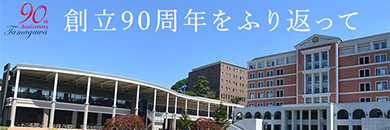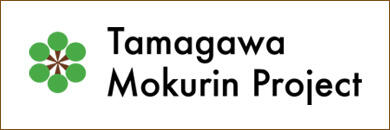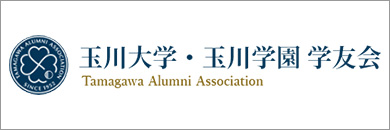史料は語る 21
「 反対合一 」
小原國芳 筆蹟
紙本墨書 色紙 時期不詳
縦27.0×横24.0cm

「反対の合一」について小原國芳は、『全人教育論』の中で対立したものに調和をもたらすというような意味合いで説明をしている。その着想はヘーゲルなどの西洋の先哲たち、京都帝国大学時代に受けた朝永(ともなが)三十郎や波多野精一らの哲学講義からと思われる。
自由な言論に制限があった戦中、機関誌『全人』に、「反對の合一」と題して「心身一如、全調一如……一如の境地こそ眞實の敎育の理想郷……よき調和へである。眞實の成長へである」(昭和16年8月)などと述べている。
1955(昭和30)年4月の学校要覧冊子『玉川学園の敎育』で「反対の合一」を「12の教育目標」の1つとして初めて公表した。小原が長く温めていた教育目標であった。その後の創立30周年記念誌『玉川教育』に載せた「玉川教育十二信条」では9番目の信条として掲げた。「大胆で小心で、朗かで淑かで、快活でたしなみがあって……これら二面を一つにした花も実もある立派な紳士に仕上げたい……コヤシも担げばピアノも弾け」などの小原の話を覚えている卒業生もいることだろう。
「反対の合一」とは相対する2つを足して2で割るということではない。全人教育と個性尊重の教育について「この二つは矛盾ではないのです。二つが一つに融化(ゆうか)せねばなりませぬ。完全なる個性発揮が実に全人教育なのです。竹は竹の……花子は花子の唯一無二の本領を発揮した時が最も美しいのだと思います」(『全人教育論』)と、「反対の合一」を元にしての持論を展開している。
白柳弘幸 学術研究所特別研究員
Coincidentia Oppositorum (Coincidence of Opposites)
A pre-Socratic Greek thinker, Heraclitus, proposed the concept of unity of opposites (unio oppositorum), and later, Catholic Cardinal Nicholas of Cusanus gave it the Neoplatonic term, coincidentia oppositorum. It is the central notion of the theory of dialectics. Drawing inspiration from the accomplishments of his predecessors, Kuniyoshi defined this concept as a state in which identity or existence of a person (or thing) depends on the harmonious co-existence or amalgamation of two opposite and conflicting yet interdependent and mutually presupposing conditions.
Reflecting the three-stage structure of Hegel's dialectic, Kuniyoshi affirmed that only through the universality of Zenjin education can fertile soil for the blossoming of distinctive individuality be created. He demonstrated that well-rounded education and education respectful of individuality, rather than being contradictory, are complementary concepts.
Kazuhito Obara
President, Managing Director, Associate Head of School
English version finalized in collaboration with
Paul McBride
Director, Center for English as a Lingua Franca (CELF)
『全人』2024年7/8月号(No.895)より









